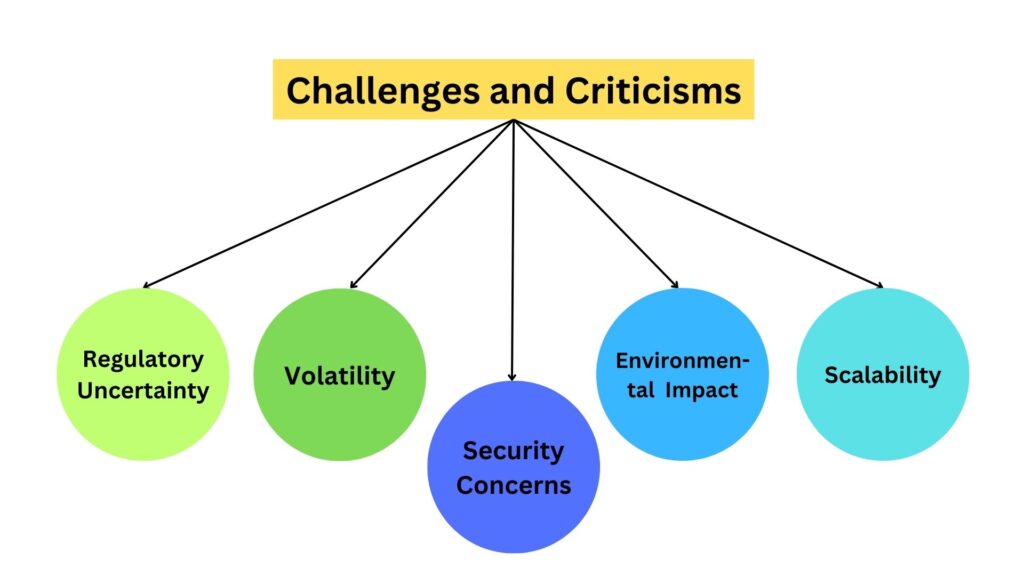A cryptocurrency is a kind of digital or virtual currency that uses cryptography for security. It is decentralized in the fact that is based on the technology behind an organized system called Blockchain; it fosters secure and transparent money transfers between peers without the need of a third party. Some popular examples includes Bitcoin and Ethereum, with applications from basic financial transactions to smart contracts and decentralized applications..

The Evolution and Impact of Cryptocurrency
Cryptocurrency has swiftly moved from a niche interest to a global phenomenon, revolutionizing the way we perceive and use money. At its core, cryptocurrency represents a digital or virtual from of currency that relies on cryptographic technique for security, making it difficult to counterfeit or double-spend. With Bitcoin’s inception in 2009 by an anonymous entity known as Satoshi Nakamoto, the world witnessed the birth of a new financial era. This blog delves into the evolution, mechanics, benefits and challenges of cryptocurrency, aiming to provide a comprehensive understanding of this digital revolution.
The Genesis of Cryptocurrency
The concept of cryptocurrency emerged from the desire to create a decentralized form of money that operates independently of any central authority. Before Bitcoin, there were attempts to create digital currencies, but they faced issues like double-spending, where a single digital token could be spent more than once. Bitcoin solved this problem by using blockchain technology, which ensure transparency and immutability.
Bitcoin and Blockchain
Bitcoin introduced the blockchain, a public ledger that records all transactions. Each block contains a list of transactions, and once added to the chain, it cannot be altered. This decentralized ledger is maintained by a network of computers (nodes), which validate transactions through a consensus mechanism called Proof of Work (PoW). This innovation not only secured the currency but also paved the way for various applications of blockchain technology beyond finance.

The Rise of Altcoins
Following Bitcoin’s success, numerous alternative cryptocurrencies, or altcoins, emerged. These include notable names like Ethereum, Ripple (XRP), Litecoin, and more. Each of these altcoins introduced unique features and improvements over Bitcoin:
- Ethereum: Launched in 2015, Ethereum introduced smart contracts, self-executing contracts with the terms directly written into code. This enabled decentralized applications (dApps) to be built on its blockchain, expanding the use cases of cryptocurrency.
- Ripple (XRP): Focused on facilitating real-time cross-border payments, Ripple aims to improve the efficiency of international money transfers, making it a favorite among financial institutions.
- Litecoin: Created by Charlie Lee in 2011, Litecoin is often referred to as the silver to Bitcoin’s gold. It offers faster transaction confirmation times and a different hashing algorithm.
The Mechanics of Cryptocurrency
To understand how cryptocurrencies function, it’s essential to grasp the basics of blockchain technology and the consensus mechanisms that validate transactions.
Blockchain Mechanisms
A blockchain is a distributed ledger that records transactions across many computers in such a way that the registered transactions cannot be altered retroactively. This ensures transparency and security. Each block in the blockchain contains a cryptographic hash of the previous block, a timestamp, and transaction data, creating a chain of blocks.
Consensus Mechanisms
- Proof of work (PoW): Used by Bitcoin, PoW requires miners to solve complex mathematical problems to validate transactions and create new blocks. This process is energy-intensive but ensures security and decentralization.
- Proof of Stake (PoS): In PoS, validators are chosen to create new blocks based on the number of coins they hold and are willing to “stake” as collateral. This method is more energy-efficient than PoW and is used by cryptocurrencies like Ethereum 2.0 and Cardano.
- Delegated Proof of Stake( DPoS): This variant involves stakeholders electing a small number of delegates to validate transactions and maintain the blockchain. It combines elements of democracy and efficiency and is used by projects like EOS and Tron.
Benefits of Cryptocurrency
Cryptocurrency offers several advantages over traditional financial systems, including:

Decentralization
Cryptocurrencies operate on decentralized networks, reducing the reliance on centralized entities like banks and governments. This ensures greater security and control for users.
Security
The cryptographic nature of cryptocurrencies makes them highly secure. Transactions are irreversible and protected by complex algorithms, reducing the risk of fraud and hacking.
Transparency
Blockchain technology provides transparency, as all transactions are recorded on a public ledger accessible to anyone. This openness reduces the risk of corruption and enhances trust.
Low Transaction Fees
Traditional financial systems often ivolve high transaction fees, especially for cross-border payments. Cryptocurrencies offer a cost-effective alternative with minimal fees.
Financial Inclusion
Cryptocurrencies provide access to financial services for the unbanked population, offering opportunities for economic growth in developing regions.
Challenges and Criticisms
Despite its numerous benefits, cryptocurrency faces several challenges and criticisms:

Regulatory Uncertainty
The regulatory environment for cryptocurrencies is constantly evolving. Governments worldwide are grappling with how to regulate and tax these digital assets, leading to uncertainty for investors and businesses.
Volatility
Cryptocurrencies are notorious for their price volatility. While this creates opportunities for traders, it also poses risks for investors and limits their use as stable currencies.
Security Concerns
While blockchain technology is secure, the platforms and exchanges where cryptocurrencies are traded are vulnerable to hacks and fraud. Several high-profile exchange hacks have resulted in significant losses for investors.
Environmental Impact
The PoW consensus mechanism used by Bitcoin and other cryptocurrencies requires substantial computational power, leading to high energy consumption and environmental concerns.
Scalability
As the number of users and transactions increases, scalability becomes a challenge. Many cryptocurrencies are working on solutions like layer-2 protocols and sharding to address this issue.
The Future of Cryptocurrency
The future of cryptocurrency is both promising and uncertain. Several trends and developments indicate the direction in which this industry might evolve:
Institutional Adoption
Increasing interest from institutional investors and major corporations is driving the mainstream adoption of cryptocurrencies. Companies like Tesla, MicroStrategy, and PayPal have integrated cryptocurrencies into their business models, signaling growing acceptance.
Decentralized Finance (DeFi)
Decentralized Finance (DeFi) is an emerging sector that leverages blockchain technology to offer financial services without intermediaries. (DeFi) platforms provide lending, borrowing, trading, and yield farming opportunities, democratizing access to financial services.
Central Bank Digital Currencies (CBDCs)
In response to the rise of cryptocurrencies, several central banks are exploring the development of their digital currencies. CBDCs aim to combine the benefits of digital currencies with the stability of traditional fiat money.
Interoperability
As the number of blockchain networks grows, interoperability between different blockchains is becoming crucial. Projects like Polkadot and Cosmos are working on solutions to enable seamless communication and transfer of assets between various blockchains.
Enhanced Privacy
Privacy-focused cryptocurrencies like Monero and Zcash are gaining traction. Future developments may include advanced cryptographic techniques like zero-knowledge proofs to enhance transaction privacy.
Environmental Solutions
To address environmental concerns, there is a push towards more energy-efficient consensus mechanisms. Ethereum’s transition to PoS and the development of new, eco-friendly protocols are steps in this direction.
Benefits of Investing in Cryptocurrency
Investing in cryptocurrency can be beneficial for several reasons, though it is important to acknowledge the risks and volatility associated with this asset class. Here are some potential benefits:
1. High Potential for Returns
Cryptocurrencies have demonstrated significant potential for high returns over short periods. For instance, early investors in Bitcoin and Ethereum have seen substantial gains as these assets appreciated in value.
2. Diversification
Cryptocurrencies can provide diversification in an investment portfolio. They often have low correlation with traditional asset classes like stocks and bonds, which can reduce overall portfolio risk and improve returns.
3. Decentralization and Transparency
Many cryptocurrencies operate on decentralized networks, typically using blockchain technology. This ensures transparency, as transactions are recorded on a public ledger that is immutable and verifiable.
4. Access to a New Asset Class
Cryptocurrencies represent a new asset class that is independent of traditional financial systems. This can be appealing for investors looking to hedge against traditional market risks and inflation.
5. Innovation and Technological Advancement
Investing in cryptocurrencies often means supporting innovative technologies like blockchain, smart contracts, and decentralized finance (DeFi). These technologies have the potential to revolutionize various industries and financial services.
6. Global Accessibility
Cryptocurrencies can be accessed and traded by anyone with an internet connection, making them highly inclusive and providing financial services to unbanked populations around the world.
7. Liquidity
Major cryptocurrencies, such as Bitcoin and Ethereum, have high liquidity. This means investors can quickly buy or sell their holdings without significantly affecting the market price.
8. 24/7 Market
Unlike traditional stock markets, cryptocurrency markets operate 24/7. This allows for continuous trading and the ability to respond to news and events in real-time.
9. Potential for Passive Income
Through mechanisms like staking, yield farming, and interest-earning accounts, investors can earn passive income on their cryptocurrency holdings.
10. Hedging Against Inflation
Some investors view cryptocurrencies, particularly Bitcoin, as a hedge against inflation. With a fixed supply (like Bitcoin’s 21 million cap), it is seen by some as a store of value, similar to gold.
Key Considerations
While there are many potential benefits, it’s crucial to consider the risks:

- Volatility: Cryptocurrencies are known for their price volatility, which can lead to significant losses.
- Regulatory Risks: The regulatory environment for cryptocurrencies is still evolving, and changes in regulations can impact the value and legality of certain assets.
- Security Risks: The risk of hacking and fraud is significant in the cryptocurrency space, requiring robust security measures to protect investments.
- Lack of Consumer Protections: Unlike traditional financial markets, cryptocurrencies often lack the consumer protections offered by banks and regulated exchanges.
While investing in cryptocurrencies offers various potential benefits, it is essential for investors to conduct thorough research, understand the risks, and consider their risk tolerance before investing.
4 Comments
The Best Guide to Cryptocurrency Trading: Everything You Need to Know - bitbonix.com · August 28, 2024 at 11:21 am
[…] Introducing Cryptocurrency and Blockchain […]
Absolute Knowledge about Decentralized Finance (DeFi) and Its Applications, and Key Considerations. - bitbonix.com · October 2, 2024 at 7:57 pm
[…] Introducing Cryptocurrency and Blockchain […]
Cryptocurrency Mining: A Complete Guide to Understanding, Starting, and Navigating the Environmental Impact - bitbonix.com · November 20, 2024 at 6:35 am
[…] Introducing Cryptocurrency and Blockchain […]
Cryptocurrency Regulation and Legal Issues - bitbonix.com · December 12, 2024 at 8:38 am
[…] Introducing Cryptocurrency and Blockchain […]